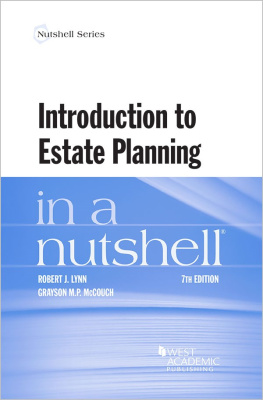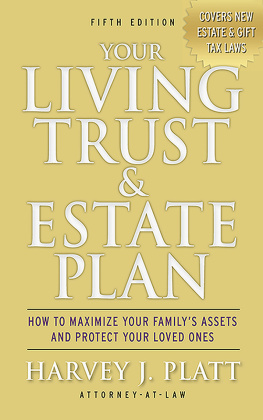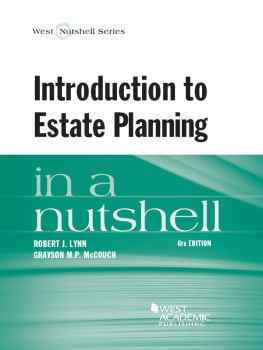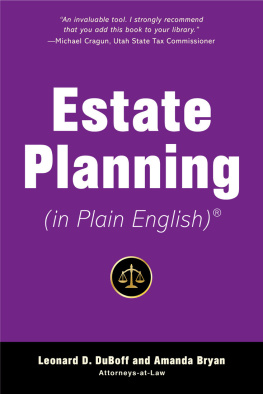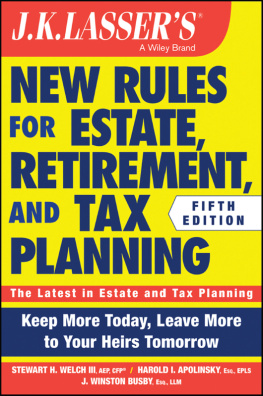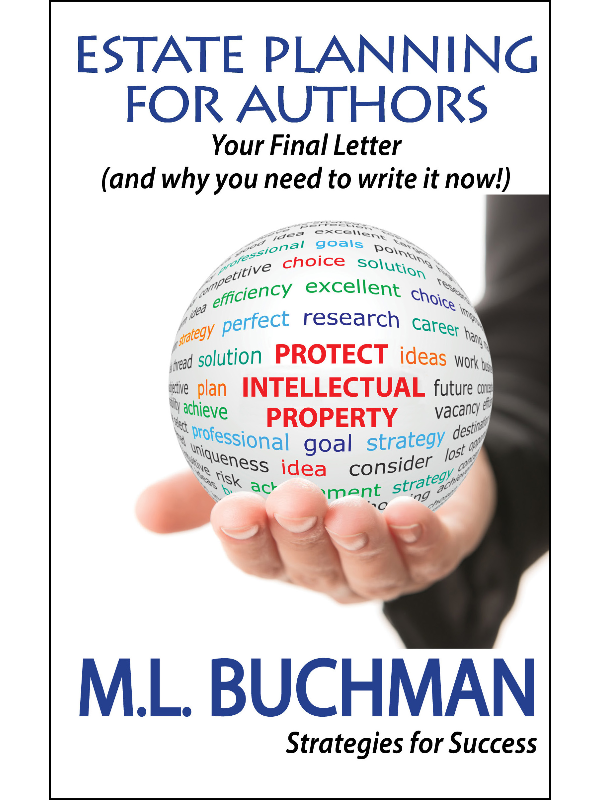
Estate Planning for Authors: Your Final Letter (and why you need to write it now)
a Strategies for Success guide
by M. L. Buchman
Dedication
To my wife and daughter, I hope this helps. Its the best I know how to protect you both.
My Thanks
To those who have listened, suggested, read, commented, prodded, and pushed until this book came to life: Kristine Kathryn Rusch, Dean Wesley Smith, Leah Cutter, Blaze Ward, Suzanne Brockmann, and the attendees of multiple workshops whose questions so accelerated my learning curve. I couldnt have done it without every one of you.
Purpose of this book
Your Will states who gets what.
Your Final Letter tells them what they can, and should, do with it once they have it.
This book is about the second bit. It suggests a method to write a Final Letter that will organize your literary estate and educate your heirs. Or, if the creator behind the estate didnt write one, this book can act as a guide for their heirs to understand what options exist to manage a literary estate.
Disclaimer
I am not a lawyer, nor (as a friend of mine is fond of saying) do I play one on TV. Nothing in this book should be construed as legal advice.
However, I have:
- 30 years experience as a project manager.
- 9 years of that were in law as a paralegal, computer systems designer, and eventually project manager of multiple multimillion dollar, class action settlements including some of the largest settlements in the 2000s.
- 20+ years as a publishing professional.
- Ive also spent over a year researching this material, presenting it several times for writers (some of whom are Intellectual Property or IP lawyers), and incorporating their feedback each time.
Part I: Getting Started
Introduction
So, what is this book? This is about how I developed the letter I wrote for my wife and kid. A letter that explained how they could manage my intellectual property once Im gone.
How many of your heirs even know what intellectual property means in that last sentence, never mind the options that exist regarding how to manage it? We need to educate our heirs and do it in simple languageI will repeat this often and it still wont be often enough.
Dear Heir, Intellectual Property (commonly referred to as IP), which well get into more later, is all the stuff the author created: books, stories, notes, audio, film, and potentially much more.
This book is first an education that I gave myself and then it is about the method Ive found to communicate this to my heirs. Further along Ive included a copy of my own Final Letter as well as a list of the best reference books Ive found so far in my research.
The Heir
When I say heir, this may be as simple as my wife or as complex as a corporation operated in trust for multiple generations of descendants, friends, and charities. For most of this book, that differentiation wont matter and Ill be clear when it does. For simplicity I will refer to heir or heirs to encompass all of these different variations.
Dear Heir, You can also use this book as a guide to help the creator of the literary estate organize their estateto make your life easier in the future. Maybe you can use the story below to nudge them into action.
The Inside Story: Elvis Presley
Elvis Presley left $500,000 to his ex-wife Priscilla and the remainder of his estate to his daughter Lisa Marie.
Generous? Not very.
The balance of the estate was worth only another $500,000. Still not badexcept that it was incurring over $500,000 per year in expenses. Nine-year-old Lisa Marie was going to be bankrupt before she was ten.
Priscilla stepped in on behalf of her daughter. She didnt need the money, she was already a successful businesswoman worth several million in her own right. But she wanted to help her daughter. After years of massive lawsuits that are a matter of public record, Priscilla recovered control of the mismanaged estate and then ran it properly.
Did she succeed? The Elvis Presley estate is worth over $400 million dollars as of 2017 and he is still a household name forty years after his death.
Lesson: If you leave your estate in a mess, will there be a Priscilla to clean it up? Or will your literary legacy die shortly after you do because the tangled disaster you left behind was too much of a pain in the ass to deal with?
The Willa brief mention
As I mentioned in the opener, the will controls who gets what. Your Final Letter should contain suggestions and advice. Do not make the Final Letter a set of instructions (especially instructions that contradict the will). Do you want there to be lawsuits?
Do you have a will? Half of Americans dont. There are some states that take half of any estate not controlled by a willjust to make up for the pain of having to deal with it. Having no will can potentially cost your heir one-half of everything they would have otherwise inherited. Or it could all go to the wrong heir.
Does your will address your intellectual property? If so, you are one of the rare few. Congratulations. If not, consider fixing thisnow.
There are three (or four, depending on how you count them) major types of property:
- Personal Property the stuff that you own (furniture, heirlooms, car, etc.)
- Real Property the places that you own (land, house, condo, etc.)
- Business Property which is mostly just a variation on the two themes above and isnt generally considered a type of its own
- Intellectual Property creative works that you own (copyrights, trademarks, patents, etc.)
Your will should address all of these property types, with intellectual property being potentially the most valuable.
If you do have a will, how up-to-date is it?
- Was a kid born since your last update? (If so, does your will include some statement like all progeny or does it list them by name so that your youngest will be left out because your will was written before their birth?)
- Was there a divorce? More than once, an old will has left the new wife and family destitute and given everything to the ex-spouse. Because you arent around to ask, the court will typically adhere to your written instructions as the best indication of your intent.
- Is your will even still valid? Several years ago I moved from one state to another. My new state had much stricter requirements of what constituted a valid will. It was two years before I learned that my family would not be covered by my existing will from my former state of residence. I updated it fast.
There are many other considerations like these, which is why the will itself is the purview of lawyers and outside the scope of this book. If your estate includes IP, an estate tax plan should be created by a reliable lawyer specializing in intellectual property. Appropriately enough, they are called IP lawyers. Ideally, you want an IP lawyer who specializes in estate planning (yes, the laws are that squirrely).
The Inside Story: Allen Drury
Allen Drury wrote Advise and Consent, the 1960 New York Times #1 Best Seller of the Year. It was also the winner of the Pulitzer Prize (a dual feat not to be repeated until 2015 by The Goldfinch earned both accolades). There was even a major motion picture.
But five novels later, Mr. Drury was sick of New York publishing practices and left instructions in his will for the executors (his lawyer and the bartender at their favorite bar) to dismantle his literary estate upon his death, which they did very thoroughly. By 2013, it was the 27th most sought-after out-of-print title in America.
Also by 2013, Mr. Drurys heirs were living in poverty. After a 15-year struggle, they managed to regain control of Advise and Consent and its five sequels from the executors. Not understanding what they now had, they almost turned around and sold all rights to all six novels for $3,000 (which would have been a massive windfall for them at that time). A friend stopped them and the six titles are now back in print and partially supporting the heirs.
Next page


